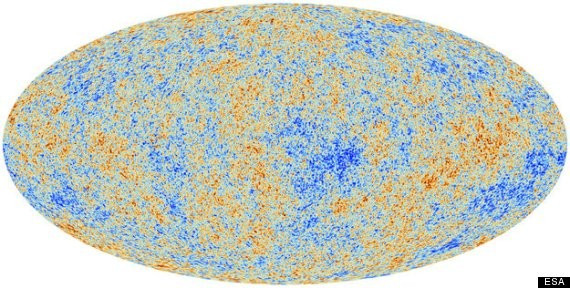Planck Space Data Yields Evidence of Universes Beyond Our Own

Scientists believe they have found the first evidence of the existence of other universes beyond our own, following analysis of the radiation left behind by the Big Bang.
Data gathered by the European Space Agency's Planck spacecraft enabled researchers to map the "cosmic microwave" of background radiation left behind when the universe began 13.8 billion years ago.
The findings imply the universe could be just one of billions, or even an infinite number, they say.
The map showed anomalies that cosmologists believe could only have been caused by the gravitational pull of other universes outside our own.
"These anomalies were caused by other universes pulling on our universe as it formed during the Big Bang," said Laura Mersini-Houghton, of the University of North Carolina.
"They are the first hard evidence for the existence of other universes that we have seen."
With her colleague Professor Richard Holman of Carnegie Mellon University, Mersini-Houghton published a series of papers from 2005 predicting that pictures from Planck would show our universe to be subject to a "pull" from other universes.
"It may be that the statistical anomalies described in this paper are a hint of more profound physical phenomena that are yet to be revealed," they wrote in a recent paper.
Planck gathered radiation from the universe when it was just 370,000 years old - and still glowing from the Big Bang.
Faint traces of radiation that has travelled across space for 13.8bn years is still detectable, but shows up far stronger in one half of the sky than the other. A large "cold" spot shows where the temperature is below average.
Mersini-Houghton will set out her findings at the How The Light Gets In festival in Hay-on-Wye in Herefordshire this week, and at a cosmology conference in Oxford.
George Efstathiou, professor of astrophysics at Cambridge and co-author of the research, said the findings "may sound wacky now, just like the Big Bang theory did three generations ago. But then we got evidence and now it has changed the whole way we think about the universe".
Malcolm Perry, professor of theoretical physics at Cambridge, said the idea was "very exciting", but would require further research.
"It is exactly right to say that this could be the first evidence for other universes," he said.
© Copyright IBTimes 2025. All rights reserved.





















